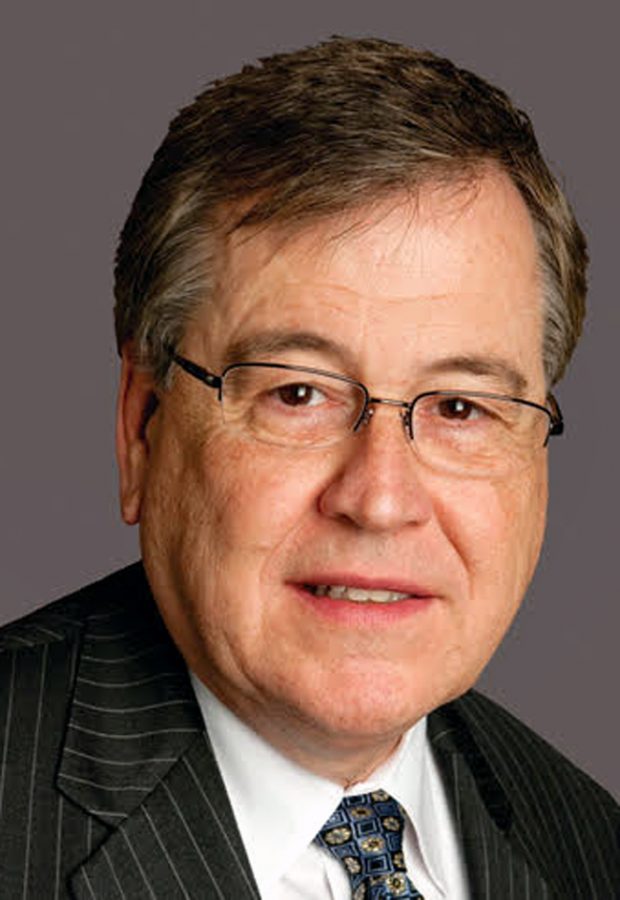Editor’s Note: This is part of a series of Q-and-A’s with the deans of the University’s 18 schools and colleges. Lynn Crismon was appointed dean of the College of Pharmacy in 2007. This interview has been condensed to fit space requirements.
The Daily Texan: Could you talk about how you collaborate with the nursing school and how you plan to collaborate with the medical school?
Lynn Crismon: This is a national movement. In fact, all of the health professional schools have national accrediting bodies for each professional discipline, and all of those accrediting bodies have started putting interprofessional education as a core curricular requirement. The philosophy is that if we’re going to transform healthcare to better meet people’s needs, we need providers that are working together collaboratively in a team-based fashion so that people’s needs are met. If you don’t have those individuals begin working together when they are students and trainees, how can you realistically expect that they’re going to know how to work together once they get out in the practice setting? So that’s sort of the overall philosophy. There are some curricular and there are some extracurricular things that the students are currently doing. The curricular things really surround, primarily, some elective coursework and ethics, where they’re doing group seminars and things, and there are also some interprofessional project, education project initiatives that students are doing together.
We have some non-curricular things through students’ organizations — community service projects. We have an initiative called Project Collaborate which involves pharmacy and nursing and social work students, where they do health screenings for underserved consumer populations, and most of those screenings they’ve done, somewhere between 40 to 50 percent of the individuals they’ve screened do not have a primary care provider. So, the pharmacy students, the nursing students do most of the screenings, and then the social work students will try to work with those people to refer them to different resources where they can get help to get healthcare. We hope with the inauguration of the Dell Medical School, we’ll be able to move things to a different level.
I was on the search committee for the [medical school] dean, and we really very, very intentionally, in terms of the questions that we asked the dean candidates, we asked about their philosophies on interprofessional education… When we interviewed Dean [Clay} Johnston… He knew exactly what we were talking about, and he totally embraces this vision that if we’re really going to meet people’s needs in terms of healthcare, then we have to provide healthcare differently, and that means optimizing people’s education and training skills, regardless of the initials behind their name.
DT: Is there a gender imbalance in the pharmacy school?
Crismon: Pharmacy over the course of my career has done a complete flip-flop in terms of gender balance. When I was a student, we were probably about 75 percent male, 25 percent female. Now, we run generally around 65 percent of each class is female, about 35 percent is male.
DT: What are some goals and new initiatives that have happened in the college in the past couple of years or that you’re planning for for the next couple of years?
Crismon: We started an endowment … to honor a retired faculty member, Arlyn Kloesel, with a goal to look at new practice models and new business models in pharmacy, and we finally got that up to enough money that we can start awarding grants to faculty and to students to research projects, to explore those business models and practice models. More recently, we had an alum who’s really interested in giving, first some cash awards and then later a planned gift, in order to foster entrepreneurism in pharmacy, both in terms of looking at the practice level as well as looking at the research level with such things as drug development, because we have a major drug development research initiative.
We’re looking at transformation in health care, what are the practice models and the business models that will be successful in the future for pharmacists to be able to be successful in practice? Because if you don’t have the business model and the practice model aligned, it’s going to fail because you’ll go broke. It doesn’t matter how good of care you provide; if you can’t protect the bottom line, you’re not going to be successful in any endeavor.
DT: Is there anything else you want students to know?
Crismon: There’s really just a multitude of different career paths that people can pursue. It’s a lot different than just what the average person thinks about when they look at going to a community pharmacy. In fact, only slightly less than half of our grads actually go into community pharmacy. All of the rest of them go into other different areas of practice … You often don’t think about the pharmacist that’s at Brackenridge [Hospital] or that’s at the surgical center or a variety of other different places that people practice.
















